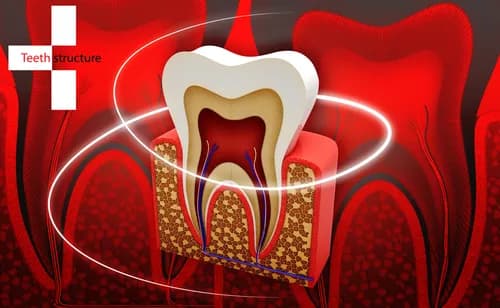
High Sugar Consumption Gives Rise To Dental Treatment Costs In The Billions
Worldwide, people are eating far too much sugar. This has negative consequences for their teeth and for their purses: seen at the global level, the costs of dental treatment are currently running at around 172 billion US dollars (128 billion euros). In Germany alone, these amount to 17.2 billion euros (23 billion US dollars) a year. These are the results of a joint study conducted by the Martin Luther University Halle-Wittenberg (MLU) and the Biotechnology Research and Information Network AG (BRAIN AG) published in the International Journal of Dental Research. The work was carried out within the strategic alliance NatLifE 2020 and was co-financed by the German Federal Ministry of Education and Research (BMBF).
For their work the researchers evaluated representative data on the prevalence of caries, inflammation of the gums (parodontitis) and tooth loss, corresponding costs of treatment and the disease burden, as well as data on sugar consumption, in 168 countries for the year 2010. On the basis of this data they calculated the share of total costs attributable to excessive consumption of sugar. In addition to white household sugar, the researchers also focused their attention, in the analysis, to "hidden" sugar that is contained in many processed products, such as soft drinks, ketchup, ice cream and frozen foods, as well as breads, cakes and pastries.
"The data shows a clear correlation between the consumption of sugar and the incidence of caries, parodontitis and, as a result, tooth loss," said the lead author of the study, Dr Toni Meier from the Institute of Agricultural and Nutritional Sciences at the MLU. "For every additional 25 grams of sugar consumed per person and day -- which amounts to roughly eight sugar-cubes or a glass of sweetened lemonade -- the costs of dental treatment in high-income countries increase on average by 100 US dollars (75 euros) per person and year." In Germany, the average daily sugar consumption lies between 90 and 110 grams per person. The costs of treatment amount to 281 US dollars (210 euros) per person and year. This puts Germany in the group of countries with the highest costs of treatment per person and year. Other countries "in the group" are Switzerland (402 US dollars, 300 euros), Denmark (238 US dollars, 178 euros) and the USA (185 US dollars, 138 euros). "If the target of 50 grams of sugar per person and day set by the World Health Organization could be reached, this would result in savings in the costs of treatment within Germany of 150 euros (201 US dollars) per person and year. Extrapolating this figure to the federal level shows annual potential savings of approximately 12 billion euros, or 16 billion US dollars," added Meier. A low-sugar diet is becoming increasingly difficult, however, since almost all processed products in the supermarket contain large quantities of added sugars.
The highest levels of sugar-related dental illness were observed by the researchers in Guatemala, Mauretania and Mexico. "Newly industrialised countries such as India, Brazil and Mexico, but also Pakistan and Egypt, could avoid an excessive burden of illness and of health care costs by anchoring the topic in their health and nutritional policies at an early stage," said the co-author of the study and nutrition scientist, Professor Gabriele Stangl of the MLU. This objective could be achieved by way of educational campaigns or by special taxation on high-calorie food. Such a sugar tax was introduced in Mexico in 2014 and already after one year was proving to be effective: the consumption of sugar-sweetened beverages had decreased by five percent. In the second year this decrease even doubled to ten percent.
"To be able to reduce the burden of nutrition-related illnesses, a balanced mix of educational work and food-policy initiatives, along with innovative technological solutions, are needed," said the co-author of the study, Dr Katja Riedel, joint coordinator of the NatLifE 2020 innovative alliance and program manager of system-products nutrition at BRAIN AG. The alliance co-financed by the German Federal Ministry of Education and Research aims, with the help of biotechnology and the understanding of biological systems, to develop a new generation of sustainably produced and biological active substances for foods and cosmetics and thereby to make a contribution towards improving human nutrition, health and well-being.
Materials provided by Martin-Luther-Universität Halle-Wittenberg. Note: Content may be edited for style and length.
Disclaimer: DoveMed is not responsible for the accuracy of the adapted version of news releases posted to DoveMed by contributing universities and institutions.
Primary Resource:
Meier, T., Deumelandt, P., Christen, O., Stangl, G. I., Riedel, K., & Langer, M. (2017). Global Burden of Sugar-Related Dental Diseases in 168 Countries and Corresponding Health Care Costs. Journal of Dental Research, 0022034517708315. DOI: 10.1177/0022034517708315
Related Articles
Test Your Knowledge
Asked by users
Related Centers
Related Specialties
Related Physicians
Related Procedures
Related Resources
Join DoveHubs
and connect with fellow professionals

0 Comments
Please log in to post a comment.